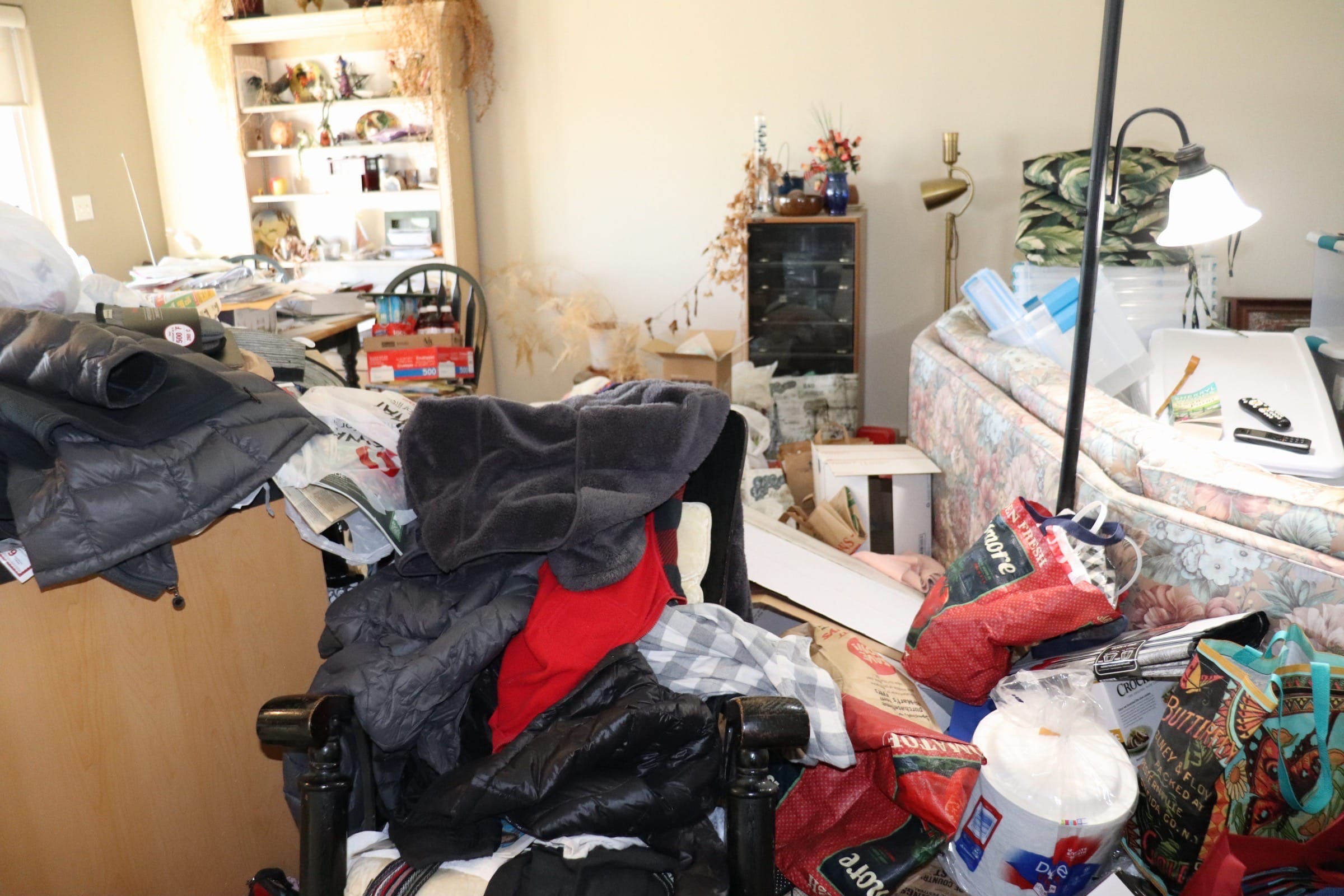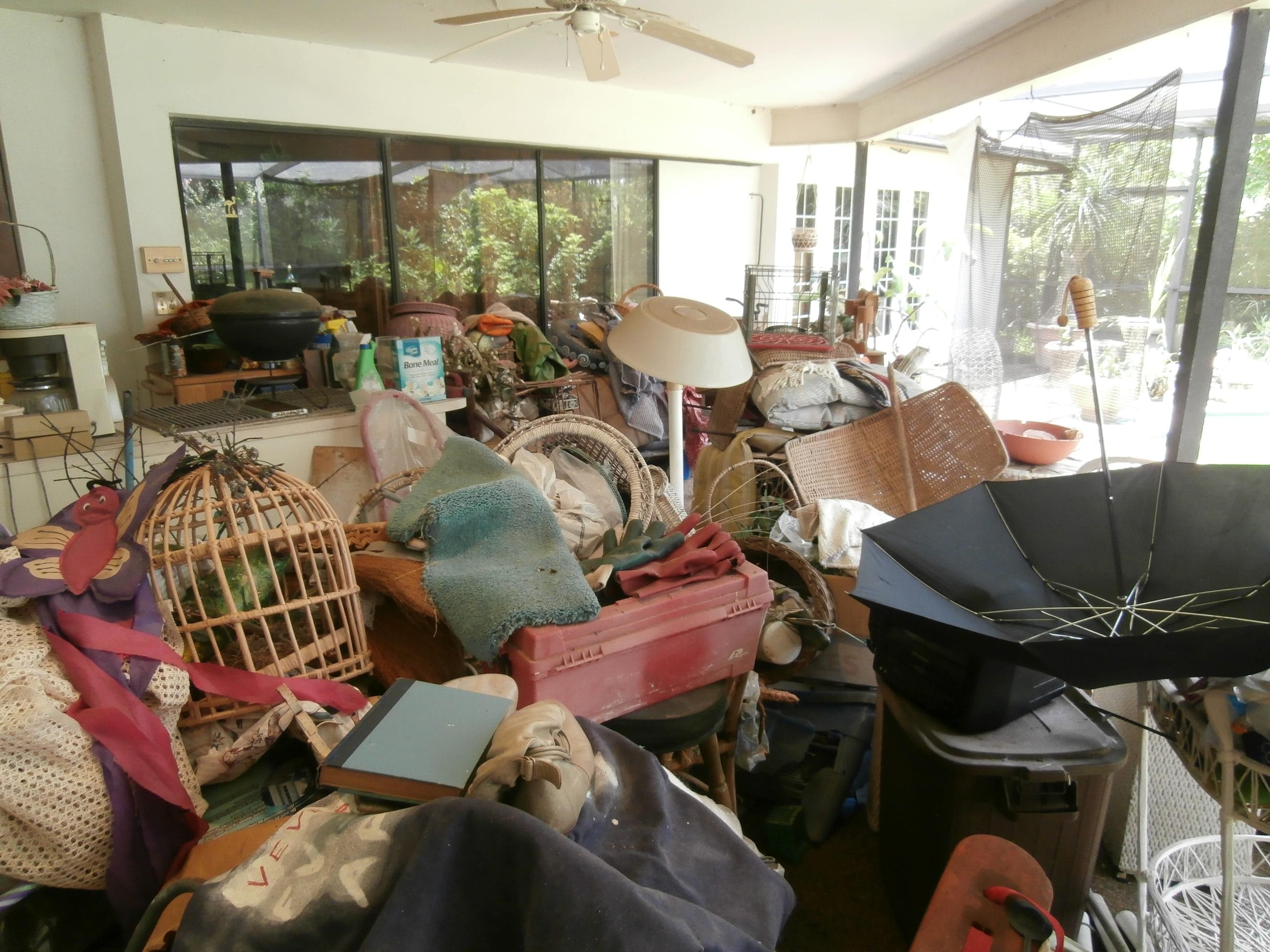For landlords, maneuvering around the complex issues concerning hoarding and tenant rights can be tricky. Because of the connection between hoarding and mental illness, your tenant, by law, is covered by the Americans with Disabilities Act (ADA). One wrong move, and you could face a lawsuit.
We will go over a few steps to help you make the right moves toward rectifying the problem with your tenant and staying out of court for violating their rights.
What Is Hoarding and Why is it a Problem?
Hoarding is the excessive collecting and inability to part with possessions, regardless of their value. Items such as newspapers, magazines, plastic bags, containers, and clothes are part of a hoarder’s prize possessions, among other things. Hoarding leads to excess clutter that eventually takes over every inch of living space in their home, creating health and safety issues. Collecting items that rot or are already rotten and accumulating piles of trash add to an already unhealthy living condition.
Hoarding Animals
More often than not, part of their collection may include animals. The unfortunate part is that they collect the animals as items, not as pets, and the animals suffer due to the hoarder’s neglect. Animals succumb to a lack of water and food and die among the clutter. This results in a biohazard of animal feces as dead animals among the piles throughout the house.
Pest Problems
Pest problems quickly become an issue, with mice, roaches, and rats living amongst all of the clutter, adding their feces and filth to the equation, creating more biohazardous materials to an already dangerous situation.
Social Isolation
Hoarding also leads to the individual isolating themselves and losing touch with their families, more often than not losing their jobs, which causes a financial burden that potentially leads to a mountain of unpaid bills and getting their utilities shut off. Isolating oneself from family and society is NOT illegal. However, the consequences can lead to a tenant who is in violation of the law.
Their collection can quickly get out of hand, causing safety and health issues, and persist to the point of becoming an issue for the house itself. Uneven weight distribution throughout the house can affect the house’s structure and, over time, can lead to the partial collapse of portions of the home. This person disassociates from anything and everything except collecting more items based on the perceived idea that they need them. The resulting clutter can fill up any and all living spaces, walkways, and exits, leading to hazardous living conditions and, ultimately, health code violations.
Is Hoarding Illegal?
Hoarding in and of itself is not illegal. Still, the resulting conditions created by hoarding can lead to safety and health code violations, building and fire code violations, and sanitation law infractions. For example, fire exits being blocked or unsanitary conditions posing a risk to other tenants or the surrounding area. The laws that are set in place that specifically mention hoarding vary from state to state, but the landlords are not without the means to take action, it just needs to be handled in a certain manner to ensure that the proper efforts have been made to assist the hoarder in taking care of the issues before eviction is an option
Due to the ADA and the connection between hoarding and underlying mental illness, landlords need to provide reasonable support in taking care of the problems in accordance with the law. This is done by allowing time for the tenant to comply to retain their tenant status.
Setting up meetings with the tenants, discussing the timelines for compliance, and reinforcing the urgency with regular inspections to monitor the cleaning process can be considered reasonable support, but it needs to be understood that each situation will have a unique set of issues and should be handled accordingly.
Building Your Case Against A Hoarder
Getting the legal language right is important when building a case against a hoarder. You, as the landlord, need to understand that you are not evicting a tenant because they are a hoarder. Still, you are evicting them because of a lease agreement violation or a safety or fire code violation that poses a risk to the tenant and other tenants or the surrounding area. Creating a paper trail that documents your efforts and supports your case if and when it’s time to evict is very important. Photographs, videos, statements from neighbors, and reports from health and safety inspectors are vital to creating evidence of the situation. In writing, you must inform the tenant of specific violations and give them time to remedy the problem.
While it is important to approach a hoarding tenant with empathy and understanding, you, the landlord, also have rights. Tenants suffering from hoarding disorder are not immune from eviction if given proper notice, time to rectify the issues, and reasonable support. By following these steps, you can build a strong case to protect your property and the safety of everyone involved.
Mental Illness Link To Hoarding
Hoarding Disorder, also known as Compulsive Hoarding Disorder, is recognized and characterized as a mental illness. Numerous studies have linked hoarding to other mental conditions such as depression, anxiety, PTSD, and OCD (Obsessive-Compulsive Disorder). It has been suggested through these studies that 2%-5% of the population have hoarding disorders and that they co-occur with these other mental illnesses.
Under the Americans with Disabilities, Act (ADA), people with mental illness conditions such as Hoarding Syndrome are protected from discrimination in housing. This means landlords cannot evict them solely for hoarding behavior if it is part of a recognized mental illness. To reiterate, even though Hoarding Disorder is a mental illness and the people who suffer from it should be approached with empathy and understanding and recognize that their issue is complex and challenging, it doesnt mean you as a landlord are helpless.
Suppose your efforts are focused on supporting the individual and protecting your property, and you follow the proper channels for addressing the issue. In that case, you will be able to accomplish the desired goal: get rid of the clutter.
How Spaulding Decon Can Help
We are not lawyers or property managers, but Spaulding Decon can still help if you are dealing with a hoarder on your property. You can hire one company to help you remove all the clutter, desensitize your property, and even make small structural repairs. Does that all sound like too much? If you lost your appetite for being a landlord, we could give you a cash offer for your property. No, you dont need to clean, stage, and gussy it up.



